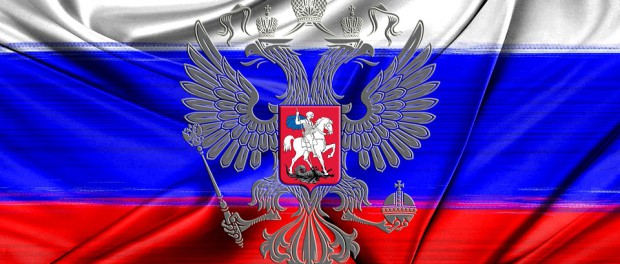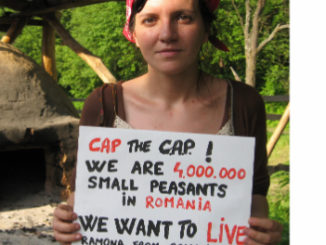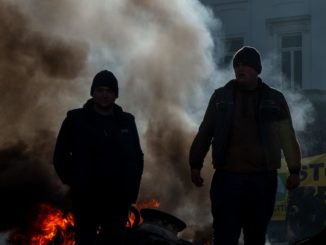By Julius Lorenzen
The EU has recently experienced several digressions from its official line on sanctions against Russia. The growing frustration of European farmers with the sanction regime has prompted national politicians to undermine the EU’s position on Russia, whilst presenting no consistent solutions of their own.

Background
When the EU’s economic sanctions against Russia were prolonged on the 21 December of 2015 for a further 6 months, it was not without the objections of several Member States. In the end, the sanctions were prolonged on the grounds of evident failure from all parties to complete the Minsk agreement. Reaching an agreement for the extension of sanctions in the next round, due end of July of this year, is likely to be even more complicated.
Governments of several EU Member States are increasingly under pressure from farmers, and as a result are openly criticising the EU’s sanction regime against Russia. While there is no consensus on a single figure for the damage incurred by the European agricultural sector, the organisation Copa Cogeca has assessed that Russian countersanctions are losing farmers 5.5 billion Euros in export value every year.
Falling credibility of the EU’s Russia sanctions
The pressure on EU Member States’ governments is mounting noticeably, and has been reflected in a large number of digressions from the communitarian line on Russian sanctions in the past month.
France’s Minister of Agriculture Stéphane Le Foll stated that if it were only up to him, he would lift the sanction imposed by the EU on Russia. The Italian Minister of Agriculture Maurizio Martina was seen at the Prodexpo in Moscow last month, showing his support for Italian producers with activities in Russia. And Bavarian Minister President Horst Seehofer – German Food Agriculture and Consumer Protection minister from 2005-2008 – undermined his own government’s position on Russia, claiming that key international geostrategic challenges can only be solved with Russia’s involvement.
The appeals for an end to the sanctions are no longer a few isolated voices. Austrian Vice Chancellor Reinhold Mitterlehner, Bulgaria’s Minister of Agriculture Desislava Taneva, Slovakia’s Prime Minister Robert Fico, and Prime Minister Viktor Orban of Hungary all made similar comments in the course of last month, all in favour of putting an end to the sanctions against Russia.
Russia’s high hopes for an EU concession
In the Russian media, the growing cracks in the EU’s tough line on Russia are observed with a certain Schadenfreude. With Turkey being the latest international actor to have been on the wrong end of Russian sanctions, Russia appears to be increasingly isolated in the international community.
As a result, sanctions have become an important topic of discussion in the media. Vesti, a high profile state news channel, has dedicated an entire section of its website to the topic of sanctions, where users are able to track new developments. Overall, the EU’s internal rows on sanctions are received with a mixed tone of hope and confirmation in the Russian media. Hope because Russia is in desperate need of positive economic news. And confirmation because every appeal made by a Member State government for the removal of sanctions is immediately interpreted as a form of political concession.
The Russian government’s stance on sanctions is very clear: The EU needs to remove all of its sanctions, for Russia to lift countersanctions. Although the Russian media is inclined to portray the sanctions as primarily a burden on EU countries, the reality is that Russia is also affected by the food embargo. Higher prices, a noticeable reduction in the range and quality of products available to consumers, and scandals of phytosanitary nature are a few examples of challenges that Russia’s food industry is currently facing.
A consistent and cohesive European line on sanctions
Removing the sanctions against Russia, to obtain relief from Russian countersanctions would be a show of dismal failure of the EU’s cohesion and foreign policy consistency. Political commentators in Russia are hopelessly optimistic that the EU is on the brink of lifting, or at least reducing its sanctions, as European farmers allegedly are no longer able to cope with their economic hardship. And certainly resistance amongst farmers is growing.
However, reducing or eliminating the sanctions would expose the lack of consistency of the EU’s foreign policy. Sanctions were imposed to reprimand Russia’s unlawful annexation of the Crimean peninsula. As of today Crimea has not returned to mainland Ukraine, nor has the Russian military involvement in the Eastern Ukrainian territories ceased. The facts on the ground have hardly changed, so why should the sanctions?
A real solution for farmers
If the sanctions are not removed, this leaves the question of what can be done for EU farmers. Keeping farmers in business, on a drip of multi-million Euro rescue packages is not a sustainable solution. A solution could start with the admission that sanctions will likely remain in place in the medium or long term.
As considered by many observers of the field, the EU has become a victim of its own unsustainable drive for production incentives, subsidies and its own export-oriented economic model. Europe’s thrive to produce always more, always cheaper, and to flood foreign markets with its agricultural products, has not only price-ruined its own farmers, but has made it vulnerable to external shocks.
The Russian food embargo has demonstrated just how exposed the EU has become not only to restrictive political measures, but also to an overall decline in demand for agricultural produces. Simultaneously the Russian government has identified the sanction crisis as an opportunity for Russians to regain sovereignty over their own food production, and encourages this through various subsidy schemes.
As a result the EU could also reconsider its own approach, and elaborate a more sustainable, long-term economic plan to replace Russia’s share of its agricultural exports. To wait until Russia has been sufficiently shamed in order to lift sanctions is most likely not an effective EU policy for its farmers, nor is it a sound foreign policy.






Very good paper! Indeed, as the author puts it “reducing or eliminating the sanctions would expose the lack of consistency of the EU’s foreign policy.” Europe must move beyond farming model being dependent on product exports (and import of raw materials) towards true food sovereignty – that is the only way to solve problems of the farmers in the long term.